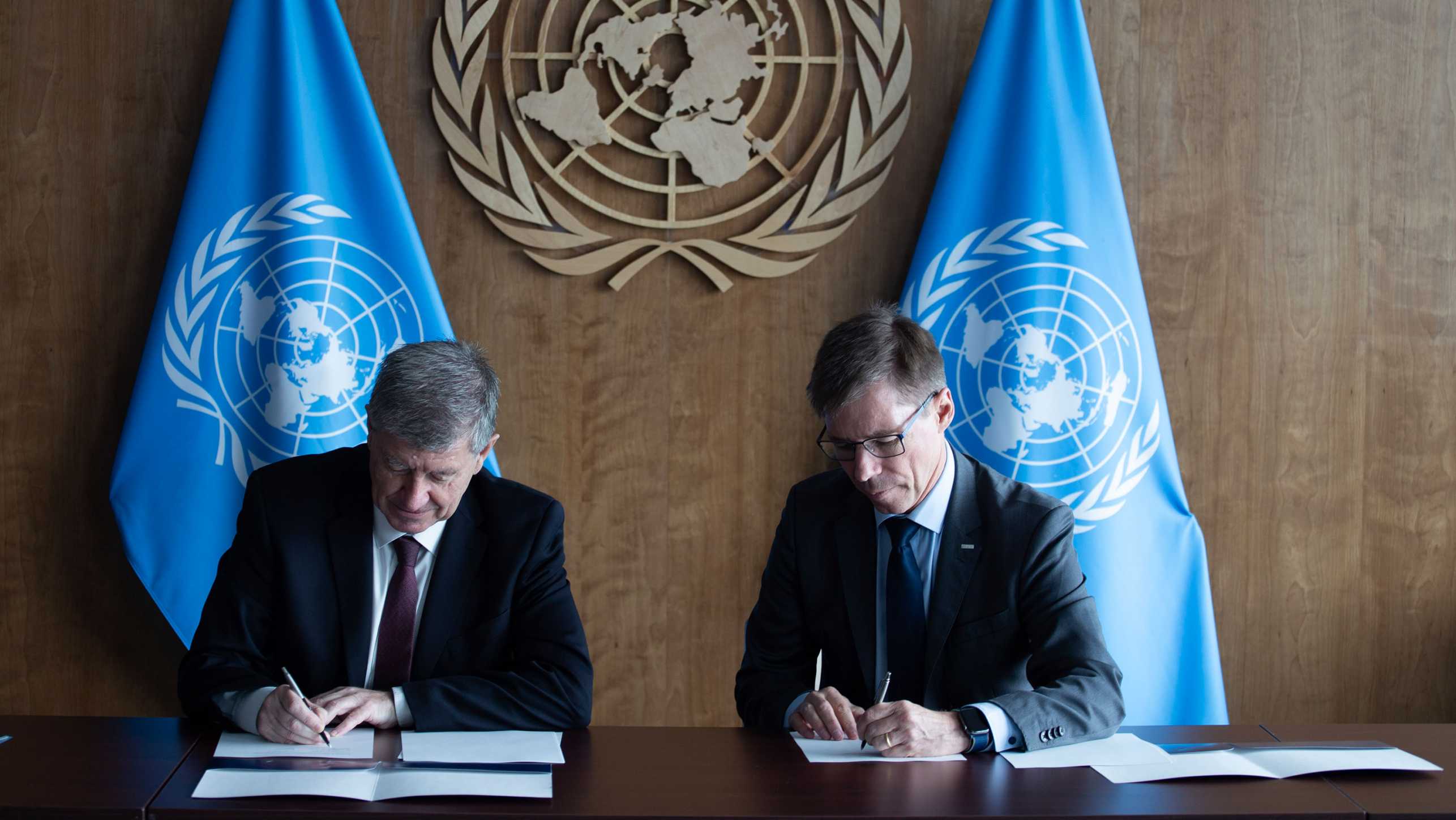Partnership
In October 2023, Joel Mesot, President of ETH Zurich, and Guy Ryder, Under-Secretary-General for Policy at the United Nations, signed a Memorandum of Understanding between ETH Zurich and the entire UN system to foster research excellence, institutional relations, and a greater understanding between the scientific and policy communities.

Aims
The partnership has three concrete goals. First, it aims to combine scientific and technological excellence at ETH Zurich with the UN’s know-how in global challenges and policymaking. This combination of expertise supports the second aim, which is to develop technology-enabled social innovations that support the management of global challenges. Third, the partnership aims to make these innovations widely available for the entire UN system.
Thematic Focus
These goals will be pursued across three thematic areas, namely, global peace and security, humanitarian aid, and the 2030 Agenda and 17 Sustainability Development Goals (SDGs). The partnership is a unique opportunity for ETH Zurich to strengthen its focus on policy-relevant research and reinforce its commitment to serve society. UN organisations will benefit from ETH Zurich expertise and receive scientific support from a trusted, nonpartisan partner.
Modalities
The partnership has three modalities of cooperation:
Joint Research Projects are open-ended, transformative and public research projects that aim at developing technology-enabled social innovations that address a specific challenge. This may lead to the development of knowledge products and tools. In these projects, scientists are in the lead and receive support, feedback, data, or other resources from policymakers and practitioners.
Implementation and Support Projects are split into three subcategories. Implementation Projects develop, test, and implement the results of Joint Research Projects. Quick-Impact Projects seek to leverage off-the-shelf innovations to address a specific and immediate need within the UN. Support Projects provide scientific support, advice, and counselling to policymakers. In these projects, practitioners and policymakers are in the lead, while scientists support.
Mutual Exchanges are mutually beneficial education and outreach programmes that forge links between the scientific and policy communities. Their aim is to foster mutual understanding, incubate ideas, and encourage synergies that lead to new projects.